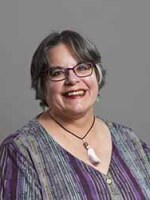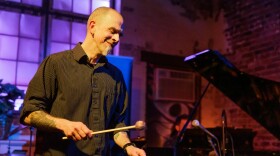This interview has been edited for length and clarity.
Tell me about your new album “Herencia Criolla.”
I actually started the concept behind the album in my mind, a little bit before the pandemic. I tend to do that before I record an album, I try to conceptualize an idea or something powerful that has a story behind it. And then after that, I start to do the writing, the composing, the all the arrangements. I try to fit everything within this concept.
Then I realized there is no point right now in me trying to express just the heritage that I received, and when I say that, I'm talking about the Dominican people, from the African diaspora and mixed with Spaniards in colonial times. In 2022 it is my intention to express the idea that we are also somehow influencing one another and we are also exposing all these ideas to the world.
A lot of people have adopted from a lot of cultures from around the world. It's not just me expressing ideas, but some people out there are also grabbing those ideas and getting influenced by them.
I take the folkloric idioms, our traditional culture, African-Dominican heritage, and I blend it with contemporary jazz in a trio setting. But I also work with bachata, which is a major phenomenon worldwide. So we're also influencing the world through bachata, like we did before with merengue during the ‘80s. So I'm not just working with my Afro-Dominican roots. I am also working with bachata and merengue, which are popular rhythms that are pretty well known to the whole world.
That is the point of this album. It's about sharing. It's about sharing ideas, sharing concepts, grabbing something that that we can work with together as a civilization, and the world, and how this music can influence other cultures and people from other countries.
I was going to record this with the sextet— with two horns, with the percussion and all that. When the pandemic came, it got me thinking a lot. I got very introspective. Then I had to change the whole concept.
There was a project that I was called to record during the pandemic. A producer here in the Dominican Republic was doing something called “Artistas Solidarios.” He decided to put together several musicians, he called Ramon Vasquez, who is Chucho Valdes' bass player from the band Jazz Bata 2, to do a song with me and Otonio Nicolas, who is my drummer.
We had to record everybody from their home studios, and that was a life-changing experience for me because I got a taste of what a trio might sound like with my new music.
We interpreted one of my arrangements, and it got me thinking that maybe the new album, “Herencia Criolla,” should really be in this setting. This will be so challenging for me to just eliminate the original percussion, and try to incorporate those idioms without actually using the drums.
In the Dominican Republic, we have usually more than two or three drums, and each drum is doing a certain pattern. So they're really communicating among themselves, and the ensemble of those patterns is what brings the manifestation alive.
So I started treating the trio with the concept that I'm going beyond just doing certain patterns. I want to treat this as a folkloric trio instead of a traditional jazz trio.
And it was very challenging for me to take pieces of those folkloric idioms and spread it throughout the trio; maybe give part of it to the upright bass, and maybe give something different to the drum set, and I would be playing something else along with the melody on piano. I love the challenge, and this is sort of like an experiment.
We're pretty familiar with Afro-Cuban and Afro-Brazilian styles, and starting to get into Afro-Peruvian and others. What's different about Afro-Dominican?
For Dominican rhythms, there are a lot of similarities. Actually there are even a lot of similarities with jazz, we are all connected from the same source. It's just different perspectives, different points of view in terms of what the community adopts in certain times.
I'm sure you can find a lot of similarities in my music with Afro-Cuban music or Afro-Peruvian music or Afro-Brazilian or Afro-Colombian and even Afro-Panamanian music, but there are certainly different specifics. Maybe this accent right here in the music of Panama is played in a different tempo in the Dominican Republic, and it's played in another tempo in Cuba, or on a different drum. And also the chants, the lyrics are maybe a little bit different, the melodies may be a little bit different.
In Dominican folklore, one of the main differences is that the bass drum is actually the one that improvises. In Cuban music, and for a lot of other cultures in Latin America, the highest pitched drum is the one that improvises. In the Dominican Republic it’s the other way around. It's the bass that moves us. You will feel it in your bones, your whole body vibrates because that is the lowest pitched drum that is playing with you. So that is one of the main differences we have here. In terms of global ideas, you can find a lot of similarities.
Give me some background about you and how you learned to play music, who were your teachers and what does it mean to you?
I come from a very politically-rooted family. My grandmother was actually the first woman to be a candidate for vice-presidency here in the Dominican Republic in the ‘60s, and she was also an anti-regime fighter. So I was raised with a sense of justice for everyone and everyone is equal.
My grandmother used to play the piano, but she had to quit when she went to medical school. I have no memories of her playing anything at all. My father is an electrical- mechanical engineer and my mother is an architect. So there are no musicians in my family.
When I was 10 years old, I was walking around with my dad and I saw a sign that said “piano lessons.” For me it was a game, I was 10 years old. I said to my dad “I would love to learn how to play the piano.”
By the time I was 11, 12 years old, I was already making melodies in my mind, and trying to figure out stuff on the keyboard. I think I've always been a composer/arranger. I love playing the piano, don't get me wrong, but I also love interpreting what I write and what I arrange and it excites me to push myself, and see how far I can go with a certain piece of music, you know, without losing its original idea.
I had a private instructor, and then by the time I was 13 years old, I enrolled in a private academy here in Santo Domingo. Later I became a teacher at that academy.
My dad always wanted for me to be an engineer, but you know, it was just not for me.
I tried to find a middle ground between what he wanted and what I wanted, so I started studying advertising. I did two semesters of advertising in Santo Domingo. And then I couldn't take it anymore. I sat down with my mom and I said, “Mom, I'm alive because of music. I need to study music.” And she was like, “Yeah, I support you all the way, whatever you want to do.”
I decided to go to Berklee College of Music in Boston, and a new world opened up for me. I found out a lot of things that I could not see before, because of where I grew up.
Dominican Republic is a third world country, even though we are pretty influenced by American culture. But that's not the same as living in the culture, where you get exposed to the environment, you get exposed to what everyone is doing, you get exposed to so many people who are striving and struggling to make it somehow and to get somewhere. It fills you, it's so contagious.
In my time in Berklee, everyone would hang out and get along with each other and share their cultural experiences, like, "Hey, I'm from Columbia and this is my music" and "Hey, I'm from Cuba and this is my music."
I was very surprised to find out that I did not know anything about my culture other than bachata and merengue. It was a very embarrassing moment for me. I was like, "Wow, I have nothing to share with you." Everybody's sharing their roots music, not just popular music, not just the music that everybody has heard before, but the music that nobody has heard before. You know, it's deeper. It's really deeper. And I had no idea of mine.
After that, I had to go back to the Dominican Republic. When I came back, one of my mentors, and one of the producers for the album, was Tommy Garcia. He has always tried to push me to do research. To get to those communities and investigate and see for yourself what you have been denied ever since you were born.
I was so surprised to find out there's like an entire parallel universe in my country I grew up not knowing anything about. It's like people have been trying to erase this from existence. And you know, you cannot erase that. You go out there and you find out this is so strong. They have traditions that are hundreds of years old. There is no way you can erase this.
There is one called Sarandunga, which is in Baní, on the southwestern side of the country. They were improvising on top of the rhythms. They were sharing the sense of community. And I remember thinking to myself, "Wow, this is the most jazz music I've heard in my life." Totally improvised.
So it's all the same. It's all connected. It's all so real. It's out there, and the only thing I needed to do was just go out there and see it for myself. So that's what I did, and that's what I have been doing for the past ten years or so. There are so many manifestations of Africa in my country that I do not know about yet because they are so marginalized and so deep underground that it's going to take a while.
Your passion for it shows in all of the music that I've heard from you. Are you going to be touring?
Well, yes. I had to push the tour back a little bit. We're hoping to go in the summer, in August. Because of inflation and the war happening, the immigration taxes for the artist visas have pretty much doubled. So the budget that I had for visas isn't going to work.
I have a few places that have confirmed and luckily all of them have agreed to wait. I have been receiving positive responses from everyone. So hopefully we'll be going in August, to New York, Boston, Cleveland, Cincinnati, Seattle; we're trying to get Portland and we’ve got The Jazz Station in Eugene, Oregon. Someone in Nashville actually wants us there, too. We're starting to put together a nice tour for me to share the music.
"Jazz Caliente" airs Saturdays at 5 p.m. The show is hosted by Robin Lloyd and produced by KNKX Public Radio.








